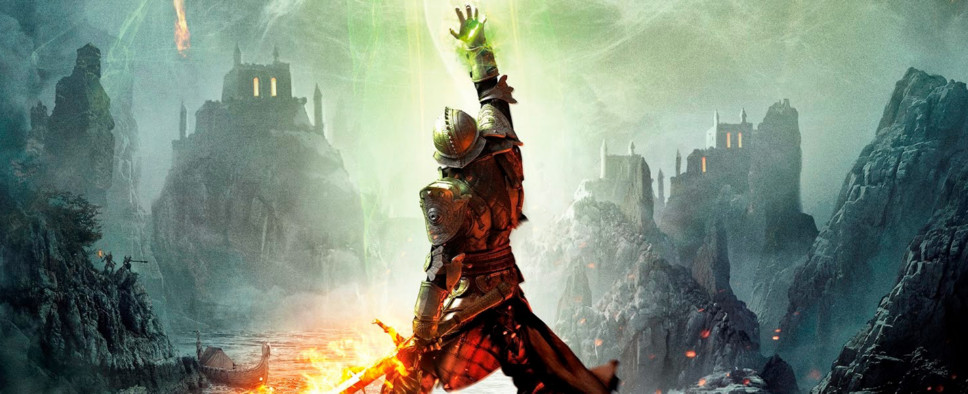Dragon Age: Inquisition + Jaws of Hakkon DLC Review
-
Category: ReviewsHits: 21079

Article Index
Characters like Iron Bull and Dorian offer a look into parts of the world that haven't yet been visited in the games, but do so without falling into the trap of being token characters, like Sten was in Dragon Age: Origins. Their companion quests and interactions cut right into the heart of their identities, while also offering commentary on the societies they come from. BioWare can do this partly because the setting is already well-established by now, but even so, the balance between worldbuilding and character writing feels a lot better than in Origins.
The best thing I can say about the cast of companions and side characters (Inquisition advisors have almost as many social interactions as the party companions) is that they are all appropriately fleshed out and consistent. This is something that can be recognized even in the weakest characters, like Sera. While the fact that she's insufferable isn't a writing flaw per se, Sera's dialogue is clunky and weak. In spite of that, there is a consistent emotional and psychological core that can be seen behind Sera's every action.
Dragon Age: Inquisition pairs a cast of memorable supporting characters with a shoddy story. Other BioWare games survived despite having weak plots, like Mass Effect 2, in light of their different focus, but that's another area where Dragon Age: Inquisition falters.
Quest Design (and more questionable narrative choices)
If you love fetch quests, I suggest you stop reading this review right now and just grab Dragon Age: Inquisition. The game is chock-full of them. It's actually really difficult for me to say anything insightful about the quest design, simply because of how bare-bones most of the quests are. For example, let's consider the quests about establishing the Inquisition's presence in wilderness areas, which open up resting camps. All of them involve reaching a certain location and clicking on a prompt. Some of them involve small navigational puzzles that requires the player to figure out how to reach a location. For the most part, though, only the player's ability to follow a quest marker is challenged.
Most of the activities in the game follow the same pattern. Clear a number of enemy camps. Free a number of prisoners. Close a number of Fade rifts. Sometimes the game is merciful and only assigns one objective, though rarely an engaging one. It's only on occasion that I was reminded that BioWare actually knows how to design engaging adventures. At times I was asked to make decisions that left me very conflicted, whether to let the Chantry or the elves learn about the true nature of a controversial event in their past, for example. Episodes like that were a breath of fresh air, but all too rare.
A quest can still be good even if its design is boring. A good story, a couple of solid lines of dialogue, even just a good cutscene, can sell an otherwise unremarkable quest. And BioWare has historically been very good at selling quests that would be otherwise unexceptional. That's why it's difficult for me to forgive the framing problems with the game's quests. Plenty of them aren't even delivered via conversations, but just added to the journal after finding an item.
A moment in particular stayed with me, a moment that made me realize BioWare had squandered almost all the potential for fun quests they had on their hands. I was exploring one of the game's vast open world zones, and found a corpse lying in a river. I prepared myself for an investigation quest of sorts. The game simply placed a map marker that led me to a note that explained the details of a suicide. There was a story here, an interesting one at that, but it had been treated with no respect.
And speaking of giving stories the respect they deserve, I was very puzzled by BioWare's decision to tuck a lot of its funniest, most interesting stories and hooks into the War Table. The War Table is essentially a time management minigame, where it's possible to select who of the three Inquisition advisors (Cullen, leader of the military, Leliana, leader of the spies, or Josephine, the Inquisition's diplomat) to assign to resolve a situation. The various situations are displayed on a map and explained with some accompanying text when selected, and each of the three advisors will usually offer a potential solution.
There are two different aspects that a player is required to consider when making a decision. One involves which of the available advisors is the best suited to deal with the situation. The second is the amount of time needed for each advisor to deal with the situation. We're talking about real time here. At first, War Table missions are a matter of minutes, but by the end of the game, there are missions that can end up taking three real time days. Thankfully, even time not spent in game is counted, so the mechanic isn't as punitive as it might seem at first.
It's still a bizarre mechanic, though, that seems to be designed solely to pad total playtime and remind players that they are in charge of a large organization, while they are out in the wilderness doing chores. And yet many of the stories contained in this War Table interactions are good. In fact, a lot of them have more personality than the actual quests in the game. Some of them even have major consequences, though unfortunately the fact that the player only learns about them via reports makes them feel much smaller than they should. This makes no sense, obviously, as the bulk of a player's time is spent doing quests and the War Table missions are a diversion at best.

